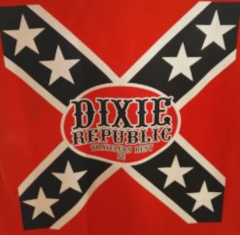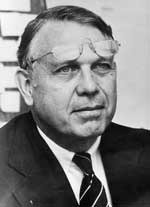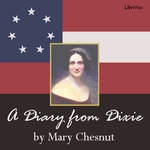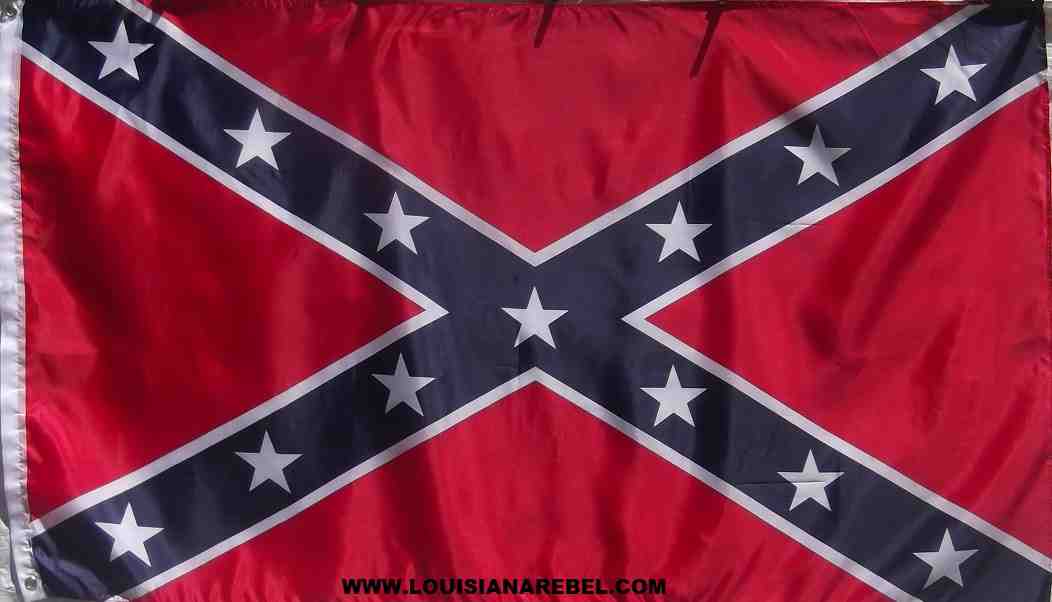A Diary From Dixie, Chapter 06
Page 57
VI. CHARLESTON, S. C.
May 25, 1861 - June 24, 1861
CHARLESTON, S. C., May 25,1861. - We have come back to South Carolina from the Montgomery Congress, stopping over at Mulberry. We came with R. M. T. Hunter and Mr. Barnwell. Mr. Barnwell has excellent reasons for keeping cotton at home, but I forget what they are. Generally, people take what he says, also Mr. Hunter's wisdom, as unanswerable. Not so Mr. Chesnut, who growls at both, much as he likes them. We also had Tom Lang and his wife, and Doctor Boykin. Surely there never was a more congenial party. The younger men had been in the South Carolina College while Mr. Barnwell was President. Their love and respect for him were immeasurable and he benignly received it, smiling behind those spectacles.
Met John Darby at Atlanta and told him he was Surgeon of the Hampton Legion, which delighted him. He had had adventures. With only a few moments on the platform to interchange confidences, he said he had remained a little too long in the Medical College in Philadelphia, where he was some kind of a professor, and they had been within an ace of hanging him as a Southern spy. "Rope was ready," he sniggered. At Atlanta when he unguardedly said he was fresh from Philadelphia, he barely escaped lynching, being taken for a Northern spy. "Lively life I am having among you, on both sides," he said, hurrying away. And I moaned, "Here was John Darby like
Page 58
to have been killed by both sides, and no time to tell me the curious coincidences." What marvelous experiences a little war begins to produce.
May 27th. - They look for a fight at Norfolk. Beauregard is there. I think if I were a man I'd be there, too. Also Harper's Ferry is to be attacked. The Confederate flag has been cut down at Alexandria by a man named Ellsworth,1 who was in command of Zouaves. Jackson was the name of the person who shot Ellsworth in the act. Sixty of our cavalry have been taken by Sherman's brigade. Deeper and deeper we go in.
Thirty of Tom Boykin's company have come home from Richmond. They went as a rifle company, armed with muskets. They were sandhill tackeys - those fastidious ones, not very anxious to fight with anything, or in any way, I fancy. Richmond ladies had come for them in carriages, feted them, waved handkerchiefs to them, brought them dainties with their own hands, in the faith that every Carolinian was a gentleman, and every man south of Mason and Dixon's line a hero. But these are not exactly descendants of the Scotch Hay, who fought the Danes with his plowshare, or the oxen's yoke, or something that could hit hard and that came handy.
Johnny has gone as a private in Gregg's regiment. He could not stand it at home any longer. Mr. Chesnut was willing for him to go, because those sandhill men said "this was a rich man's war," and the rich men would be the officers and have an easy time and the poor ones would
1. Ephraim Elmer Ellsworth was a native of Saratoga County, New York. In 1860 he organized a regiment of Zouaves and became its Colonel. He accompanied Lincoln to Washington in 1861 and was soon sent with his regiment to Alexandria, where, on seeing a Confederate flag floating from a hotel, he personally rushed to the roof and tore it down. The owner of the hotel, a man named Jackson, met him as he was descending and shot him dead. Frank E. Brownell, one of Ellsworth's men, then killed Jackson.
Page 59
be privates. So he said: "Let the gentlemen set the example; let them go in the ranks." So John Chesnut is a gentleman private. He took his servant with him all the same.
Johnny reproved me for saying, "If I were a man, I would not sit here and dole and drink and drivel and forget the fight going on in Virginia." He said it was my duty not to talk so rashly and make enemies. He "had the money in his pocket to raise a company last fall, but it has slipped through his fingers, and now he is a common soldier." "You wasted it or spent it foolishly," said I. "I do not know where it has gone," said he. "There was too much consulting over me, too much good counsel was given to me, and everybody gave me different advice." "Don't you ever know your own mind?" "We will do very well in the ranks; men and officers all alike; we know everybody."
So I repeated Mrs. Lowndes's solemn words when she heard that South Carolina had seceded alone: "As thy days so shall thy strength be." Don't know exactly what I meant, but thought I must be impressive as he was going away. Saw him off at the train. Forgot to say anything there, but cried my eyes out.
Sent Mrs. Wigfall a telegram - "Where shrieks the wild sea-mew?" She answered: "Sea-mew at the Spotswood Hotel. Will shriek soon. I will remain here."
June 6th. - Davin! Have had a talk concerning him to-day with two opposite extremes of people.
Mrs. Chesnut, my mother-in-law, praises everybody, good and bad. "Judge not," she says. She is a philosopher; she would not give herself the pain to find fault. The Judge abuses everybody, and he does it so well - short, sharp, and incisive are his sentences, and he revels in condemning the world en bloc, as the French say. So nobody is the better for her good word, or the, worse for his bad one.
Page 60
In Camden I found myself in a flurry of women. "Traitors," they cried. "Spies; they ought to be hanged; Davin is taken up, Dean and Davis are his accomplices." "What has Davin done?" "He'll be hanged, never you mind." "For what?" "They caught him walking on the trestle work in the swamp, after no good, you may be sure." "They won't hang him for that!" "Hanging is too good for him!" "You wait till Colonel Chesnut comes." "He is a lawyer," I said, gravely. "Ladies, he will disappoint you. There will be no lynching if he goes to that meeting to-day. He will not move a step except by habeas corpus and trial by jury, and a quantity of bench and bar to speak long speeches."
Mr. Chesnut did come, and gave a more definite account of poor Davin's precarious situation. They had intercepted treasonable letters of his at the Post Office. I believe it was not a very black treason after all. At any rate, Mr. Chesnut spoke for him with might and main at the meeting. It was composed (the meeting) of intelligent men with cool heads. And they banished Davin to Fort Sumter. The poor Music Master can't do much harm in the casemates there. He may thank his stars that Mr. Chesnut gave him a helping hand. In the red hot state our public mind now is in there will be a short shrift for spies. Judge Withers said that Mr. Chesnut never made a more telling speech in his life than he did to save this poor Frenchman for whom Judge Lynch was ready. I had never heard of Davin in my life until I heard he was to be hanged.
Judge Stephen A. Douglas, the "little giant," is dead; one of those killed by the war, no doubt; trouble of mind.
Charleston people are thin-skinned. They shrink from Russell's touches. I find his criticisms mild. He has a light touch. I expected so much worse. Those Englishmen come, somebody says, with three P's - pen, paper, prejudices. I dread some of those after-dinner stories. As to
Page 61
that day in the harbor, he let us off easily. He says our men are so fine looking. Who denies it? Not one of us. Also that it is a silly impression which has gone abroad that men can not work in this climate. We live in the open air, and work like Trojans at all manly sports, riding hard, hunting, playing at being soldiers. These fine, manly specimens have been in the habit of leaving the coast when it became too hot there, and also of fighting a duel or two, if kept long sweltering under a Charleston sun. Handsome youths, whose size and muscle he admired so much as they prowled around the Mills House, would not relish hard work in the fields between May and December. Negroes stand a tropical or semitropical sun at noon-day better than white men. In fighting it is different. Men will not then mind sun, or rain, or wind.
Major Emory,1 when he was ordered West, placed his resignation in the hands of his Maryland brothers. After the Baltimore row the brothers sent it in, but Maryland declined to secede. Mrs. Emory, who at least is two-thirds of that copartnership, being old Franklin's granddaughter, and true to her blood, tried to get it back. The President refused point blank, though she went on her knees. That I do not believe. The Franklin race are stiff-necked and stiff-kneed; not much given to kneeling to God or man from all accounts.
If Major Emory comes to us won't he have a good time? Mrs. Davis adores Mrs. Emory. No wonder I fell in love with her myself. I heard of her before I saw her in
1. William H. Emory had served in Charleston harbor during the Nullification troubles of 1831-1836. In 1846 he went to California, afterward served in the Mexican War, and later assisted in running the boundary line between Mexico and the United States under the Gadsden Treaty of 1853. In 1854 he was in Kansas and in 1858 in Utah. After resigning his commission, as related by the author, he was reappointed a Lieutenant-Colonel in the United States Army and took an active part in the war on the side of the North.
Page 62
this wise. Little Banks told me the story. She was dancing at a ball when some bad accident maker for the Evening News rushed up and informed her that Major Emory had been massacred by ten Indians somewhere out West. She coolly answered him that she had later intelligence; it was not so. Turning a deaf ear then, she went on dancing. Next night the same officious fool met her with this congratulation: "Oh, Mrs. Emory, it was all a hoax! The Major is alive." She cried: "You are always running about with your bad news," and turned her back on him; or, I think it was, "You delight in spiteful stories," or, "You are a harbinger of evil." Banks is a newspaper man and knows how to arrange an anecdote for effect.
June 12th. - Have been looking at Mrs. O'Dowd as she burnished the "Meejor's arrms" before Waterloo. And I have been busy, too. My husband has gone to join Beauregard, somewhere beyond Richmond. I feel blue-black with melancholy. But I hope to be in Richmond before long myself. That is some comfort.
The war is making us all tenderly sentimental. No casualties yet, no real mourning, nobody hurt. So it is all parade, fife, and fine feathers. Posing we are en grande tenue. There is no imagination here to forestall woe, and only the excitement and wild awakening from every-day stagnant life are felt. That is, when one gets away from the two or three sensible men who are still left in the world.
When Beauregard's report of the capture of Fort Sumter was printed, Willie Ancrum said: "How is this? Tom Ancrum and Ham Boykin's names are not here. We thought from what they told us that they did most of the fighting."
Colonel Magruder1 has done something splendid on the
1. John Bankhead Magruder was a graduate of West Point, who had served in the Mexican War, and afterward while stationed at Newport, R. I., had become famous for his entertainments. When Virginia seceded, he resigned his commission in the United States Army. After the war he settled in Houston, Texas. The battle of Big Bethel was fought on June 10, 1861. The Federals lost in killed and wounded about 100, among them Theodore Winthrop, of New York, author of Cecil Dreeme. The Confederate losses were very slight.
Page 63
peninsula. Bethel is the name of the battle. Three hundred of the enemy killed, they say.
Our people, Southerners, I mean, continue to drop in from the outside world. And what a contempt those who seceded a few days sooner feel for those who have just come out! A Camden notable, called Jim Velipigue, said in the street to-day: "At heart Robert E. Lee is against us; that I know." What will not people say in war times! Also, he said that Colonel Kershaw wanted General Beauregard to change the name of the stream near Manassas Station. Bull's Run is so unrefined. Beauregard answered: "Let us try and make it as great a name as your South Carolina Cowpens."1
Mrs. Chesnut, born in Philadelphia, can not see what right we have to take Mt. Vernon from our Northern sisters. She thinks that ought to be common to both parties. We think they will get their share of this world's goods, do what we may, and we will keep Mt. Vernon if we can. No comfort in Mr. Chesnut's letter from Richmond. Unutterable confusion prevails, and discord already.
In Charleston a butcher has been clandestinely supplying the Yankee fleet outside the bar with beef. They say he gave the information which led to the capture of the Savannah. They will hang him.
Mr. Petigru alone in South Carolina has not seceded. When they pray for our President, he gets up from his knees. He might risk a prayer for Mr. Davis. I doubt if
1. The battle of the Cowpens in South Carolina was fought on January 17, 1781; the British, under Colonel Tarleton, being defeated by General Morgan, with a loss to the British of 300 killed and wounded and 500 prisoners.
Page 64
it would seriously do Mr. Davis any good. Mr. Petigru is too clever to think himself one of the righteous whose prayers avail so overly much. Mr. Petigru's disciple, Mr. Bryan, followed his example. Mr. Petigru has such a keen sense of the ridiculous he must be laughing in his sleeve at the hubbub this untimely trait of independence has raised.
Looking out for a battle at Manassas Station. I am always ill. The name of my disease is a longing to get away from here and to go to Richmond.
June 19th. - In England Mr. Gregory and Mr. Lyndsey rise to say a good word for us. Heaven reward them; shower down its choicest blessings on their devoted heads, as the fiction folks say.
Barnwell Heyward telegraphed me to meet him at Kingsville, but I was at Cool Spring, Johnny's plantation, and all my clothes were at Sandy Hill, our home in the Sand Hills; so I lost that good opportunity of the very nicest escort to Richmond. Tried to rise above the agonies of every-day life. Read Emerson; too restless - Manassas on the brain.
Russell's letters are filled with rubbish about our wanting an English prince to reign over us. He actually intimates that the noisy arming, drumming, marching, proclaiming at the North, scares us. Yes, as the making of faces and turning of somersaults by the Chinese scared the English.
Mr. Binney1 has written a letter. It is in the Intelligencer of Philadelphia. He offers Lincoln his life and fortune; all that he has put at Lincoln's disposal to conquer us. Queer; we only want to separate from them, and
1. Horace Binney, one of the foremost lawyers of Philadelphia, who was closely associated with the literary, scientific, and philanthropic interests of his time. His wife was a sister of Mrs. Chesnut, the author's mother-in-law.
Page 65
they put such an inordinate value on us. They are willing to risk all, life and limb, and all their money to keep us, they love us so.
Mr. Chesnut is accused of firing the first shot, and his cousin, an ex-West Pointer, writes in a martial fury. They confounded the best shot made on the Island the day of the picnic with the first shot at Fort Sumter. This last is claimed by Captain James. Others say it was one of the Gibbeses who first fired. But it was Anderson who fired the train which blew up the Union. He slipped into Fort Sumter that night, when we expected to talk it all over. A letter from my husband dated, "Headquarters, Manassas Junction, June 16, 1861":
MY DEAR MARY: I wrote you a short letter from Richmond last Wednesday, and came here next day. Found the camp all busy and preparing for a vigorous defense. We have here at this camp seven regiments, and in the same command, at posts in the neighborhood, six others - say, ten thousand good men. The General and the men feel confident that they can whip twice that number of the enemy, at least.
I have been in the saddle for two days, all day, with the General, to become familiar with the topography of the country, and the posts he intends to assume, and the communications between them.
We learned General Johnston has evacuated Harper's Ferry, and taken up his position at Winchester, to meet the advancing column of McClellan, and to avoid being cut off by the three columns which were advancing upon him. Neither Johnston nor Beauregard considers Harper's Ferry as very important in a strategic point of view.
I think it most probable that the next battle you will hear of will be between the forces of Johnston and McClellan.
I think what we particularly need is a head in the field - a Major-General to combine and conduct all the forces as well as plan a general and energetic campaign. Still, we have all confidence that we will defeat the enemy whenever and wherever we meet in general engagement. Although the majority of the people
Page 66
just around here are with us, still there are many who are against us.
God bless you.
Yours,
JAMES CHESNUT, JR.
Mary Hammy and myself are off for Richmond. Rev. Mr. Meynardie, of the Methodist persuasion, goes with us. We are to be under his care. War-cloud lowering.
Isaac Hayne, the man who fought a duel with Ben Alston across the dinner-table and yet lives, is the bravest of the brave. He attacks Russell in the Mercury - in the public prints - for saying we wanted an English prince to the fore. Not we, indeed! Every man wants to be at the head of affairs himself. If he can not be king himself, then a republic, of course. It was hardly necessary to do more than laugh at Russell's absurd idea. There was a great deal of the wildest kind of talk at the Mills House. Russell writes candidly enough of the British in India. We can hardly expect him to suppress what is to our detriment.
June 24th. - Last night I was awakened by loud talking and candles flashing, tramping of feet, growls dying away in the distance, loud calls from point to point in the yard. Up I started, my heart in my mouth. Some dreadful thing had happened, a battle, a death, a horrible accident. Some one was screaming aloft - that is, from the top of the stairway, hoarsely like a boatswain in a storm. Old Colonel Chesnut was storming at the sleepy negroes looking for fire, with lighted candles, in closets and everywhere else. I dressed and came upon the scene of action.
"What is it? Any news?" "No, no, only mamma smells a smell; she thinks something is burning somewhere." The whole yard was alive, literally swarming. There are sixty or seventy people kept here to wait upon this household, two-thirds of them too old or too young to be of any use, but families remain intact. The old Colonel has a magnificent voice. I am sure it can be heard for miles. Literally, be was roaring from the piazza, giving
Page 67
orders to the busy crowd who were hunting the smell of fire.
Old Mrs. Chesnut is deaf; so she did not know what a commotion she was creating. She is very sensitive to bad odors. Candles have to be taken out of the room to be snuffed. Lamps are extinguished only in the porticoes, or farther afield. She finds violets oppressive; can only tolerate a single kind of sweet rose. A tea-rose she will not have in her room. She was totally innocent of the storm she had raised, and in a mild, sweet voice was suggesting places to be searched. I was weak enough to laugh hysterically. The bombardment of Fort Sumter was nothing to this.
After this alarm, enough to wake the dead, the smell was found. A family had been boiling soap. Around the soap-pot they had swept up some woolen rags. Raking up the fire to make all safe before going to bed, this was heaped up with the ashes, and its faint smoldering tainted the air, at least to Mrs. Chesnut's nose, two hundred yards or more away.
Yesterday some of the negro men on the plantation were found with pistols. I have never before seen aught about any negro to show that they knew we had a war on hand in which they have any interest.
Mrs. John de Saussure bade me good-by and God bless you. I was touched. Camden people never show any more feeling or sympathy than red Indians, except at a funeral. It is expected of all to howl then, and if you don't "show feeling," indignation awaits the delinquent.











